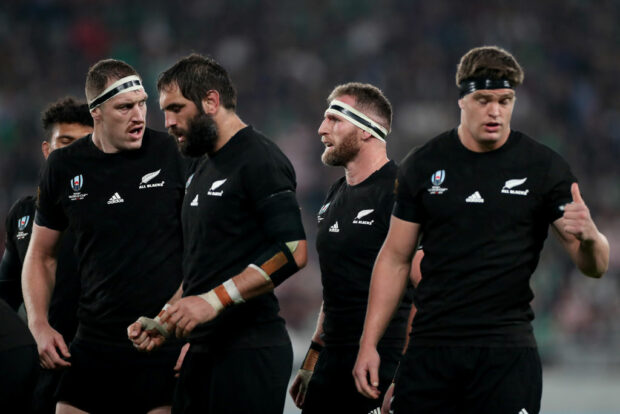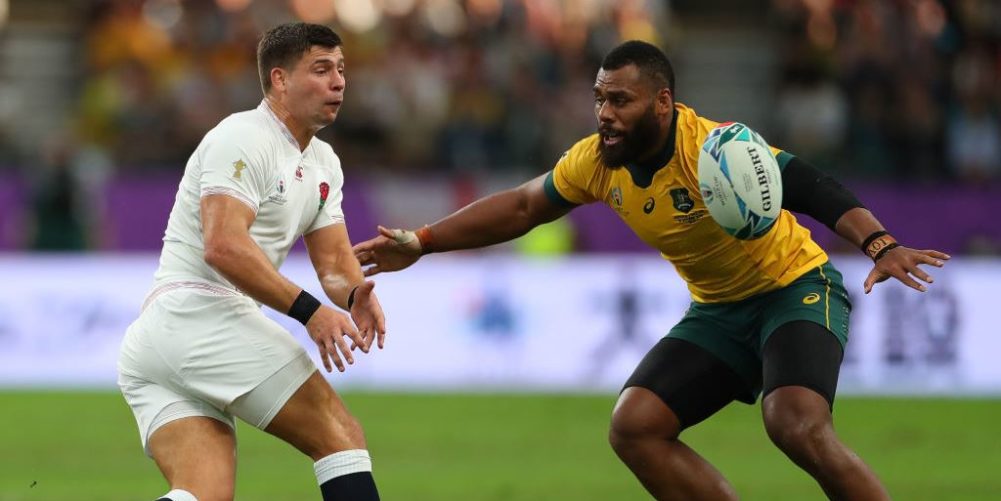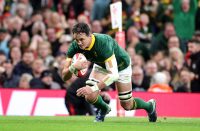THE bookies had England by 8-10 points before the game and midway through the second half that was how it stood. Australia had shown in the Pool game against Wales how dangerous they can be in the second half and they love having the ball in their hands – but that was to be their downfall.
Kurtley Beale is a dangerous runner but England knew he would run every time and it played into their hands. England didn’t have to think about it, they just knew he was going to have a go.
With a coach of Michael Chieka’s experience, and gifted players such as Christian Lealiifano, Michael Hooper and David Pocock, it was a shock to see how they allowed England to put the pressure on in the Wallaby 22 by insisting on running. It was dumb, non-sensical play to try and go through six phases to exit, rather than two followed by a box kick to relieve the pressure.
That’s what England did and Ben Youngs had one of his best games for a long time. If he can reproduce that this week England have a chance against the All Blacks.
Poised at 27-16, there was a pivotal period around the 52nd minute mark when the Wallabies were coming hard at the English line. Charging runs from Isi Naisarani, Samu Kerevi and Marika Koroibete were repelled and Kyle Sinckler came up with a crucial turnover to rip the ball away and give England a chance to clear their line. Unlike Wales, from then on England did not let the Wallabies get another point on the board.
Moments before that Koroibete had skinned Elliot Daly on the outside to make him look like an amateur and it seemed game on for the next half an hour. Had Australia scored again it would have been 27-23 with the Wallabies having wrestled back momentum as they had in the Wales game.
But England absorbed all Australia could throw at them.
Sam Underhill made 20 tackles, Mako Vunipola 18, there were 17 by Jamie George and Owen Farrell and 16 by Tom Curry. It was relentless defence but I was gobsmacked that Australia played the way they did by running from everywhere. They were forced into errors by the speed of defence and England produced some clinical finishing – which is what you must have to win these big games.
Following England’s whitewash of the Wallabies on tour in 2016, this was just a continuation of the stranglehold Eddie Jones’ side have had over them, including three consecutive Autumn series wins.
New Zealand will be a tougher proposition this week but on this display England have a chance.

Owen Farrell looked far more commanding in the No.10 shirt and the shape, how they set up to attack, their running lines and passing accuracy meant England looked like they could score every time they attacked.
But England cannot rely on single ball carriers, they will need to hit hard two or three times in a row and the clearers will need to play with their heads up to both clear defenders and protect the ball.
New Zealand’s defence is the smartest in the world and if England’s support players just charge in to clear out the All Blacks, they will stand off and then step in to steal the ball. Runners cannot afford to be isolated because the All Blacks are so clever at the breakdown.
Another thing is the ferocity in the tackle. England were lightning fast off the line but the blitz needs to be more destructive when it hits.
With the attack functioning as it did I can’t see Eddie returning to the George Ford-Farrell partnership. While Henry Slade looked like a player who had had limited big game exposure in recent weeks, the few mistakes he made were redeemed by his neat touches– especially the kick through for Jonny May‘s second try.
One positional switch I would go for is moving Elliot Daly to the wing and putting Anthony Watson at full-back. Daly was not at his best against Australia. Against Argentina he was beating players and catching tricky balls and brought a real threat to the attack. While Koroibete is a wickedly sharp runner, Daly won’t be happy by the ease with which the Wallaby wing skinned him.
His positioning has been slightly exposed and is it worth persevering with him in that position if he could be utterly exposed on Saturday? And if he is, how would he come back from it for the remainder of the game? Watson is a potent attacking player, solid in defence and has played a lot of 15 for his club. He’s no worse under the high ball than Daly, in fact he’s probably better.
Every World Cup-winning side has had a hugely influential scrum-half and whether Youngs can back up what was a solid display against New Zealand will go a long way in deciding the outcome. He is reliant on his pack setting another good platform, and if they do dominate and give him quick, clean ball he has to use it properly again. If his box-kicking is off beam or his decision-making laboured, England will lose.
If he can repeat this performance it flows through the backline.
Every player must be at least 8/10 for England to do it. Intensity in defence was around about a 7.5/10 last Saturday and that needs to ramp up to 9/10. The All Blacks have special players who can turn lead into gold, which arch alchemist Beauden Barrett proves with his world class brilliance at fly-half but now also full-back. Which other player can do that?
Aaron Smith was at his darting, sniping best against Ireland, while Richie Mo’unga’s goal-kicking will punish any ill-discipline and the rest of the backline never drop below 7.5/10.
If England can up the ante it will be a competitive game against the All Blacks.
New Zealand are not unbeatable – Ireland lacked intensity and made too many mistakes. If England’s pack can deliver 8/10 performances across the board it will take something special from New Zealand to match that and it could be one of the great games of all time.
JEREMY GUSCOTT























